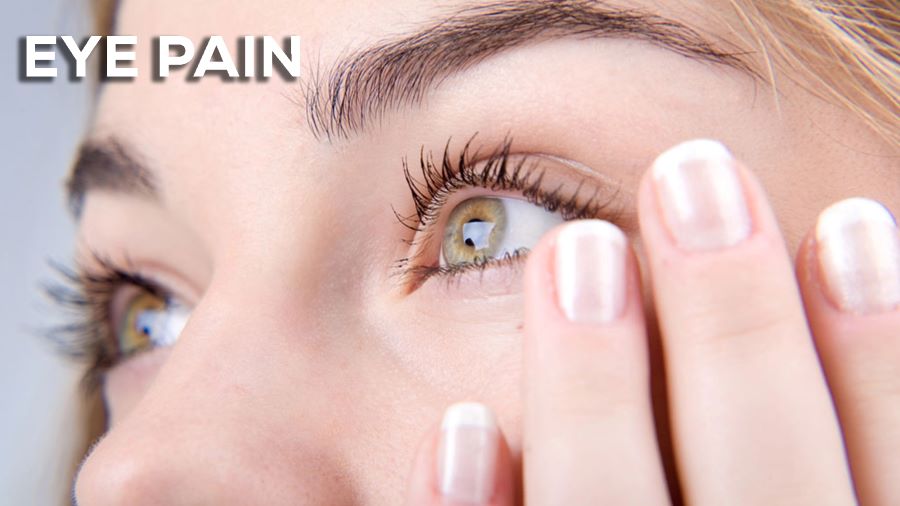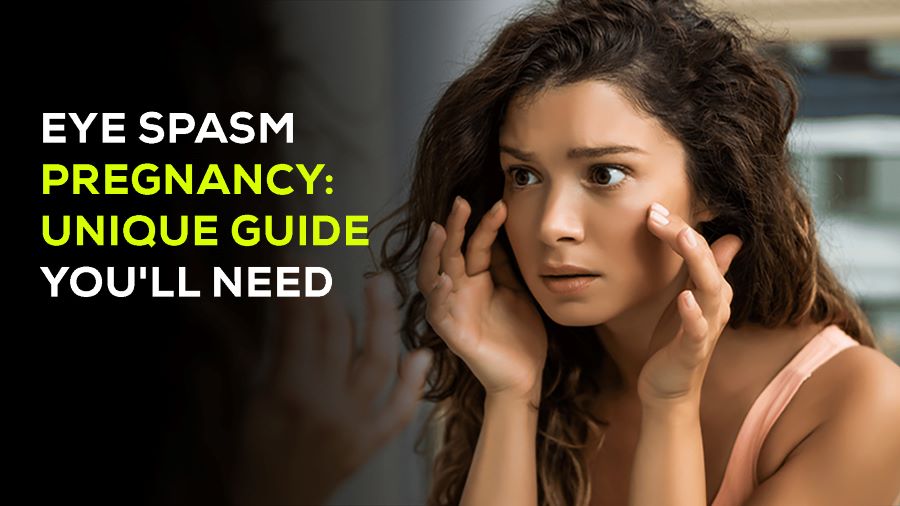Pregnancy is a time of joy, wonder, and constant change. From morning sickness to swollen ankles, most women expect the common symptoms. But when your eye suddenly starts twitching like it has a mind of its own, it can feel confusing or even alarming.
If you’ve experienced an eye spasm during pregnancy, you’re not alone. While it’s not talked about as much as back pain or cravings, it’s surprisingly common—and usually harmless.
Let’s explore everything you need to know about eye spasm pregnancy, including what causes it, how to manage it, and when to see a doctor.
What Is an Eye Spasm?
An eye spasm—or eyelid twitch—is a brief, uncontrollable movement of the muscles around the eye. The medical name for this is myokymia. It usually affects the upper eyelid, although the lower eyelid can twitch too.
Most eye spasms are:
-
Painless
-
Temporary
-
Random in timing
-
Triggered by stress, fatigue, or eye strain
While these twitches can be annoying, they’re rarely a sign of anything serious. In pregnancy, however, these spasms might feel more intense or more frequent because of all the changes your body is going through.

Why Eye Spasm Happens During Pregnancy
1. Hormonal Changes
During pregnancy, your body experiences a flood of hormones—mainly estrogen and progesterone. These hormones help support your growing baby, but they also affect your nervous system.
This hormonal shift can make your muscles, including the ones around your eyes, more sensitive and reactive. That means even a little bit of stress or tiredness can trigger an eye spasm.
2. Fatigue and Poor Sleep
Getting good sleep can be tough while you’re pregnant. From bathroom breaks to discomfort in bed, sleep becomes harder—especially in the third trimester.
Lack of rest is one of the most common causes of eye spasm pregnancy. When your body is tired, the tiny muscles around your eyes can start twitching as a way of saying, “I need a break.”
3. Stress and Anxiety
Whether it’s your first pregnancy or your third, the mental load can be heavy. Worrying about your health, planning for the baby, or juggling work can all lead to tension in your body.
Muscle tension from stress often shows up in small ways—like jaw clenching, shoulder tightness, or eye twitching. The more pressure you feel, the more likely it is that your eyes may react.
4. Screen Time and Eye Strain
Staring at a computer or phone screen for hours can dry out your eyes and strain the muscles around them. During pregnancy, when your body is already more sensitive, screen time might cause more frequent eye twitches.
Even reading in poor lighting or skipping eye breaks can add to the problem.
5. Vitamin and Mineral Deficiencies
Growing a baby takes a lot of nutrients. If your diet is missing key vitamins and minerals, especially:
-
Magnesium
-
Potassium
-
Calcium
-
Vitamin B12
…your muscles—including those around your eyes—might start to spasm. These nutrients are essential for healthy nerve and muscle function.
Is Eye Spasm Pregnancy Normal?
Yes, eye spasm during pregnancy is actually more common than most expectant mothers think. While it might catch you off guard—especially if it’s your first time experiencing it—it’s usually a harmless symptom. An eye spasm in pregnancy often feels like a small twitch in the eyelid that comes and goes. It can show up suddenly, usually in response to fatigue, stress, lack of sleep, or even minor vitamin deficiencies, particularly magnesium or B12. These little spasms can also happen more often if you’re spending too much time on screens or not staying hydrated.

That said, even though eye spasm pregnancy is usually nothing to worry about, it’s always a good idea to mention it to your doctor, especially if it’s paired with other symptoms like eye pain, blurred vision, or headaches. Sometimes, what seems like a simple twitch could be your body’s gentle nudge to slow down, drink more water, or tweak your prenatal vitamin routine. The good news? Most eye spasms go away on their own once the underlying cause is addressed.
What Makes It Worse?
-
Lack of sleep
-
Poor hydration
-
High stress levels
-
Excess caffeine
-
Poor nutrition
-
Long periods of screen use
The good news is that eye spasm pregnancy usually goes away after childbirth, once hormones balance and you get more rest (hopefully!).
When to Worry About Eye Spasms in Pregnancy
Most of the time, eye spasm pregnancy is just a small nuisance—like a flickering light that comes and goes. It’s usually triggered by common pregnancy factors like fatigue, stress, or dehydration. However, there are times when it could signal something more. If the eye spasm pregnancy symptoms last for several days without any breaks, or if the twitch spreads beyond your eyelid to other parts of your face, it’s worth getting checked. Persistent spasms might point to something deeper, like a nerve issue or a mineral imbalance.
It’s also important to pay attention if eye spasm pregnancy comes with other red flags like eye pain, vision changes, swelling, or frequent headaches. These could point to underlying conditions like preeclampsia, high blood pressure, or severe vitamin deficiency. In some cases, a lack of magnesium or B-complex vitamins can lead to muscle twitching that doesn’t go away on its own. So if the spasms don’t stop with rest, hydration, or dietary changes, reach out to your healthcare provider. Trusting your instincts during pregnancy matters—when in doubt, it’s always better to ask.
Call Your Doctor If:
-
The twitching lasts more than a week
-
You have eye pain or pressure
-
Your vision is blurry or double
-
You notice swelling, redness, or discharge
-
Other parts of your face start twitching
-
You have a history of migraines and feel pain behind your eyes
These symptoms could point to something more serious, like a nerve issue, migraine, sinus pressure, or even high blood pressure (a possible sign of preeclampsia).
How to Relieve Eye Spasms During Pregnancy
You don’t have to suffer through it. There are safe and easy ways to soothe or even prevent eye spasm pregnancy symptoms.
1. Prioritize Rest
Sleep is your best medicine. If you can’t get a full night’s sleep, try taking short naps during the day. Even 20 minutes of rest can help reset your body and calm your nerves.
2. Stay Hydrated
Drink plenty of water throughout the day. Dehydration affects your muscles and can trigger twitching. Aim for at least 8–10 glasses daily.
3. Eat Nutrient-Rich Foods
Focus on foods that support muscle health:
-
Spinach, almonds, and pumpkin seeds (rich in magnesium)
-
Bananas, avocados, and sweet potatoes (high in potassium)
-
Eggs, cheese, and lean meats (for vitamin B12)
Most prenatal vitamins cover these nutrients, but if you’re still experiencing twitching, ask your doctor if you need more of a specific supplement.
4. Cut Back on Caffeine
Too much caffeine can make your muscles jumpy. Try switching to decaf or herbal tea if you’ve been drinking a lot of coffee or soda.
5. Practice Eye Care
Give your eyes a break:
-
Follow the 20-20-20 rule: Every 20 minutes, look at something 20 feet away for 20 seconds.
-
Use a warm compress over your eyes to relax the muscles.
-
Gently massage your eyelids with clean fingers.
6. Lower Stress
Try calming activities like:
-
Deep breathing
-
Prenatal yoga
-
Gentle walks
-
Listening to soothing music
-
Journaling or talking to a friend
These small habits can reduce overall muscle tension—and stop the twitching.
Real-Life Story: One Mom’s Experience
“I was in my third trimester, working long hours and barely sleeping. One day, my left eyelid started twitching non-stop. At first, I panicked—was it a nerve issue? But my OB reassured me it was a common sign of stress and fatigue. I started adding more leafy greens to my meals and made time for 30 minutes of rest daily. Within a week, the twitching stopped.”
Stories like this are common—and show that simple lifestyle changes can make a big difference.

Eye Pain vs. Eye Twitching in Pregnancy
It’s important to know the difference.
| Symptom | Likely Cause | What to Do |
|---|---|---|
| Twitching | Muscle fatigue, hormone changes, low nutrients | Usually harmless—rest and hydrate |
| Dull or sharp pain | Dry eyes, sinus pressure, migraine | Monitor; see a doctor if it gets worse |
| Pressure behind eyes | High blood pressure, migraine | Seek medical attention |
| Vision changes | Hormonal shifts or eye issues | Always report to your OB or eye doctor |
Frequently Asked Questions
1. Is eye spasm an early sign of pregnancy?
Not usually. While it can happen during pregnancy, it’s not a typical first sign. It’s more common in the second or third trimester due to hormone shifts and stress.
2. Can vitamin deficiency cause eye spasms during pregnancy?
Yes. Low levels of magnesium, potassium, calcium, or B12 can lead to twitching muscles. A balanced diet and prenatal vitamins help prevent this.
3. Should I worry if my eye keeps twitching?
If it lasts more than a week or comes with other symptoms, check in with your doctor. But for most pregnant women, it’s a temporary and harmless issue.
4. Can screen time cause eye spasms?
Yes. Too much screen time can dry out your eyes and overwork the eye muscles, which may lead to twitching.
5. What helps relieve eye spasm in pregnancy fast?
Warm compresses, eye rest, hydration, and magnesium-rich snacks (like almonds or spinach) often help quickly.
Final Thoughts
An eye spasm during pregnancy might feel strange, but it’s typically not a cause for concern. Your body is working hard—supporting your baby, adjusting to hormonal shifts, and adapting to less sleep and more stress.
In most cases, twitching is just your body’s way of saying it needs rest, nutrients, or a break from the screen. With a few simple lifestyle tweaks, most eye spasm pregnancy symptoms will ease on their own.
Eye spasm during pregnancy can feel strange, especially when you’re already adjusting to so many changes in your body. While it might seem like a small thing, eye spasm pregnancy could be your body’s way of asking for rest, better hydration, or even more vitamins. It’s easy to overlook tiny muscle twitches, but paying attention to them—especially when paired with other signs like fatigue or eye pain—can help you feel more in control. Whether it’s a harmless twitch or something linked to vitamin deficiency, it’s always worth bringing up during a checkup. Listening to your body now sets the tone for a healthier pregnancy journey ahead.
Still, if anything feels off or unusual, don’t hesitate to reach out to your healthcare provider. They’re there to support you every step of the way—eye twitch and all.

